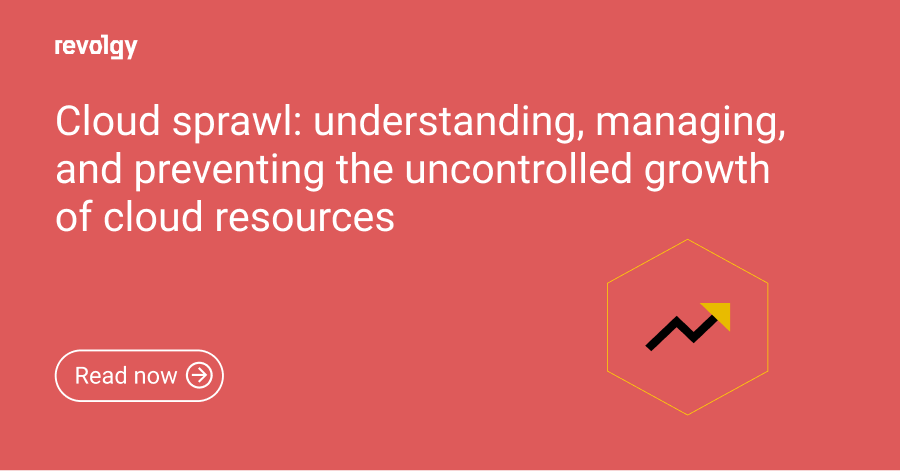Managed Services, Cloud Platform Services
Traditional Ops vs. DevOps vs. CloudOps
The cloud offers incredible benefits, but managing your infrastructure requires careful planning. Unlocking the full potential of the cloud requires a strategic approach to infrastructure management. This guide explores three key approaches — traditional Ops, DevOps, and CloudOps — breaking down each option so you can choose the right option for your business.
What is traditional Ops?
Let’s take it from the start and look at traditional IT Operations first. In short, traditional Ops (IT Operations) manages on-premise IT infrastructure like servers and networks. It relies on manual processes, separate dev and ops teams, and reacts to issues rather than preventing them. While reliable, it lacks the agility and automation needed for the cloud.
What is DevOps?
DevOps is a collaborative approach that brings together development (Dev) and operations (Ops) teams. It focuses on the entire software development lifecycle, whether on-premise or cloud-based.
We’ve said above that, traditionally, these teams worked in silos, creating bottlenecks and inefficiencies, and DevOps bridges the gap. In DevOps, development (Dev) and operations (Ops) teams work together throughout the software development lifecycle. This allows for faster development cycles, better communication, and quicker issue resolution. DevOps also heavily relies on automation to streamline processes.
What is CloudOps?
CloudOps is essentially DevOps for the cloud. It takes the core DevOps principles of collaboration and automation but applies them specifically to managing cloud resources.
What’s the difference between CloudOps and DevOps?
DevOps is the philosophy that emphasizes collaboration and automation, while CloudOps is the practical application of those principles in a cloud environment.
CloudOps as an extension of DevOps
CloudOps focuses specifically on managing cloud infrastructure. While it borrows heavily from DevOps principles, it’s tailored for the cloud environment.
It utilizes tools designed explicitly for cloud management, such as Infrastructure as Code, platforms (for example, Terraform), cloud monitoring solutions, or cloud cost optimization tools. Plus, it requires an understanding of cloud platforms (such as AWS and GCP), cloud-specific tools and services, and expertise in security and compliance for cloud environments.
| DevOps | CloudOps | |
| Focus | Entire software development lifecycle (on-premise or cloud) | Managing cloud infrastructure |
| Skills | Wider range (version control, CI/CD pipelines, automation tools) | Cloud-specific (Infrastructure as Code platforms, cloud monitoring, cost optimization tools) |
| Tools | Software development, scripting languages, automation tools, CI/CD pipelines | Cloud platforms (AWS, GCP), cloud-specific tools, cloud security & compliance |
| Context | Collaboration, automation, continuous improvement | Extension of DevOps principles for cloud environments |
The benefits of CloudOps and DevOps for your business
CloudOps and DevOps go hand-in-hand to boost your business. They are more than just technical approaches; they represent a strategic shift towards a more agile and efficient way of operating in the cloud. They bring:
- Faster delivery & innovation: Automation streamlines processes, accelerating software delivery and fostering continuous improvement cycles. This brings new features to market quicker and fuels innovation.
- Reduced costs & improved efficiency: Automation minimizes errors and allows for on-demand resource scaling in the cloud, leading to cost savings and a more efficient workflow.
- Stronger collaboration & security: DevOps breaks down silos, promoting teamwork and shared responsibility. CloudOps adds continuous monitoring for proactive security and performance management.
- Empowered teams & increased productivity: By automating tasks and fostering collaboration, CloudOps and DevOps free up your team's time for strategic initiatives and innovation.
Revolgy: your CloudOps partner
Migrating to the cloud brings many benefits, but it also introduces new complexities in managing your infrastructure. This is where CloudOps expertise becomes crucial. Revolgy can help you navigate the transition seamlessly with our in-depth knowledge of CloudOps practices.
- CloudOps expertise: Our team possesses in-depth knowledge of CloudOps principles and best practices. We understand the intricacies of managing cloud infrastructure and can help you select the right tools and strategies for your needs.
- Seamless migration: Migrating to the cloud can be a headache without the right strategy and know-how. Our expertise extends beyond CloudOps and includes the entire migration process, with a smooth transition with minimal disruption.
- Tailored CloudOps strategy: A one-size-fits-all approach simply doesn’t work for CloudOps. Revolgy works closely with you to understand your unique business goals and cloud environment. We then design and implement a customized CloudOps strategy that optimizes your cloud infrastructure for performance, security, and cost.
- Continuous optimization: Revolgy doesn’t just “set you up” — we stay by your side. We’ll continuously monitor your cloud environment, identify optimization opportunities, and help you adapt your CloudOps strategy to maximize your return on cloud investment.
Read next: Level up your cloud control with support, monitoring & incident response for Google & AWS
Summary
Traditional Ops offers a familiar approach but lacks cloud agility. DevOps fosters collaboration across the development lifecycle but isn’t cloud-specific. CloudOps is the ideal solution, applying DevOps principles with specialized tools for optimal cloud infrastructure management.
Partnering with Revolgy helps you to:
- Maximize the return on your cloud investment.
- Focus on core business initiatives while we handle cloud management.
- Gain a competitive edge through increased agility and innovation.
- Experience a smoother and more efficient cloud journey.
Ready to leverage the power of the cloud with confidence? Contact Revolgy today, and let’s discuss your cloud migration goals!



